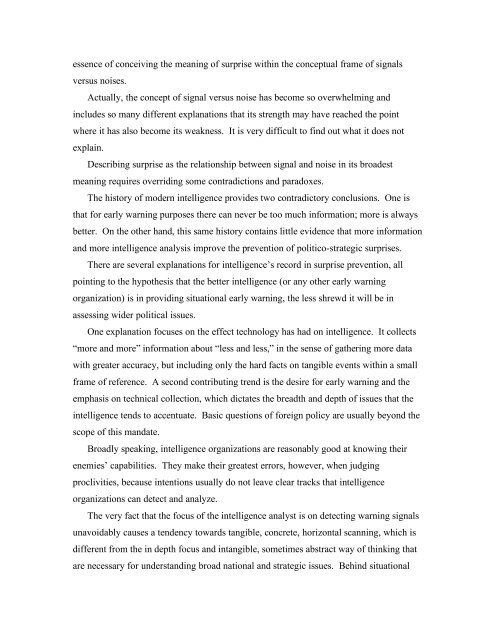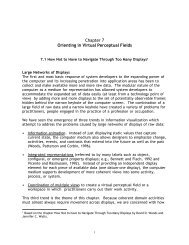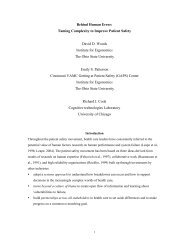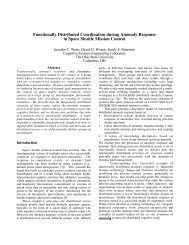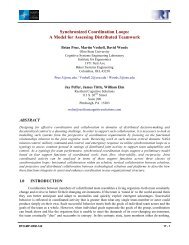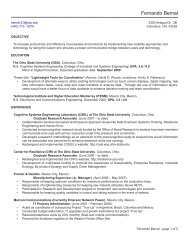Fundamental Surprises Zvi Lanir Decision Research 1201 Oak ...
Fundamental Surprises Zvi Lanir Decision Research 1201 Oak ...
Fundamental Surprises Zvi Lanir Decision Research 1201 Oak ...
- No tags were found...
Create successful ePaper yourself
Turn your PDF publications into a flip-book with our unique Google optimized e-Paper software.
essence of conceiving the meaning of surprise within the conceptual frame of signals<br />
versus noises.<br />
Actually, the concept of signal versus noise has become so overwhelming and<br />
includes so many different explanations that its strength may have reached the point<br />
where it has also become its weakness. It is very difficult to find out what it does not<br />
explain.<br />
Describing surprise as the relationship between signal and noise in its broadest<br />
meaning requires overriding some contradictions and paradoxes.<br />
The history of modern intelligence provides two contradictory conclusions. One is<br />
that for early warning purposes there can never be too much information; more is always<br />
better. On the other hand, this same history contains little evidence that more information<br />
and more intelligence analysis improve the prevention of politico-strategic surprises.<br />
There are several explanations for intelligence’s record in surprise prevention, all<br />
pointing to the hypothesis that the better intelligence (or any other early warning<br />
organization) is in providing situational early warning, the less shrewd it will be in<br />
assessing wider political issues.<br />
One explanation focuses on the effect technology has had on intelligence. It collects<br />
“more and more” information about “less and less,” in the sense of gathering more data<br />
with greater accuracy, but including only the hard facts on tangible events within a small<br />
frame of reference. A second contributing trend is the desire for early warning and the<br />
emphasis on technical collection, which dictates the breadth and depth of issues that the<br />
intelligence tends to accentuate. Basic questions of foreign policy are usually beyond the<br />
scope of this mandate.<br />
Broadly speaking, intelligence organizations are reasonably good at knowing their<br />
enemies’ capabilities. They make their greatest errors, however, when judging<br />
proclivities, because intentions usually do not leave clear tracks that intelligence<br />
organizations can detect and analyze.<br />
The very fact that the focus of the intelligence analyst is on detecting warning signals<br />
unavoidably causes a tendency towards tangible, concrete, horizontal scanning, which is<br />
different from the in depth focus and intangible, sometimes abstract way of thinking that<br />
are necessary for understanding broad national and strategic issues. Behind situational


